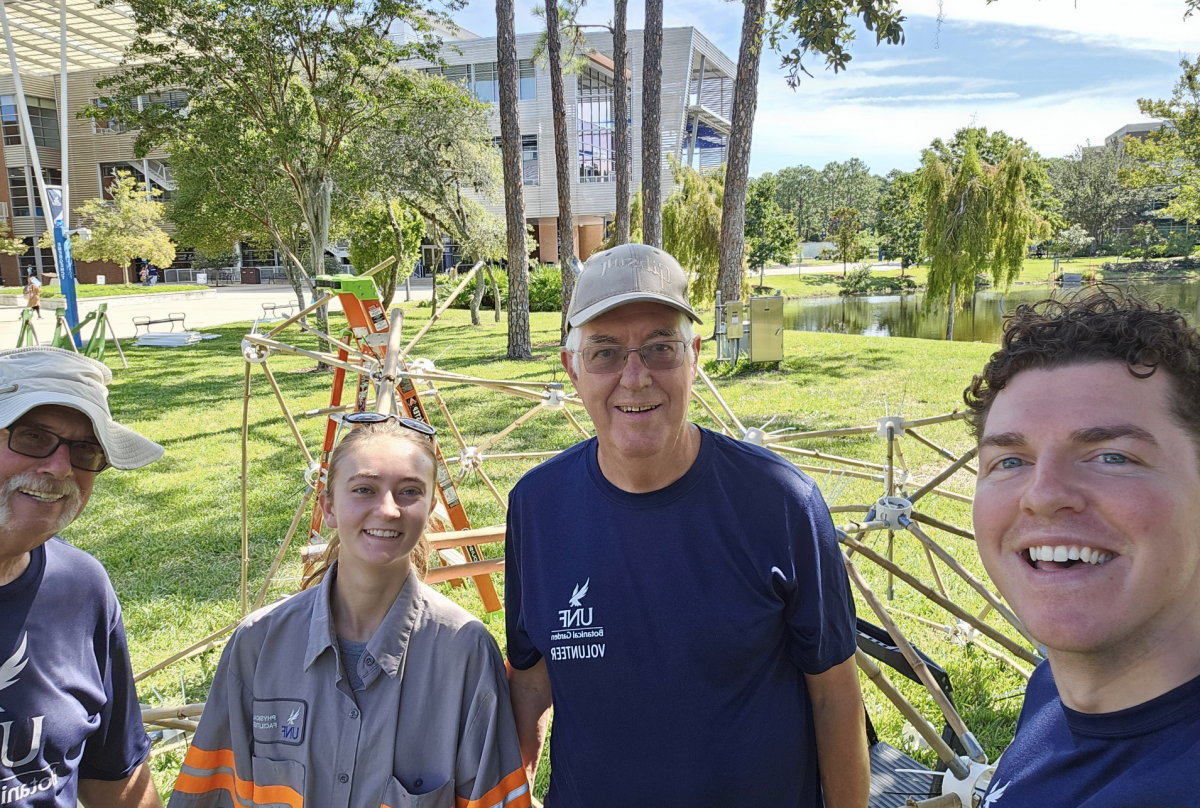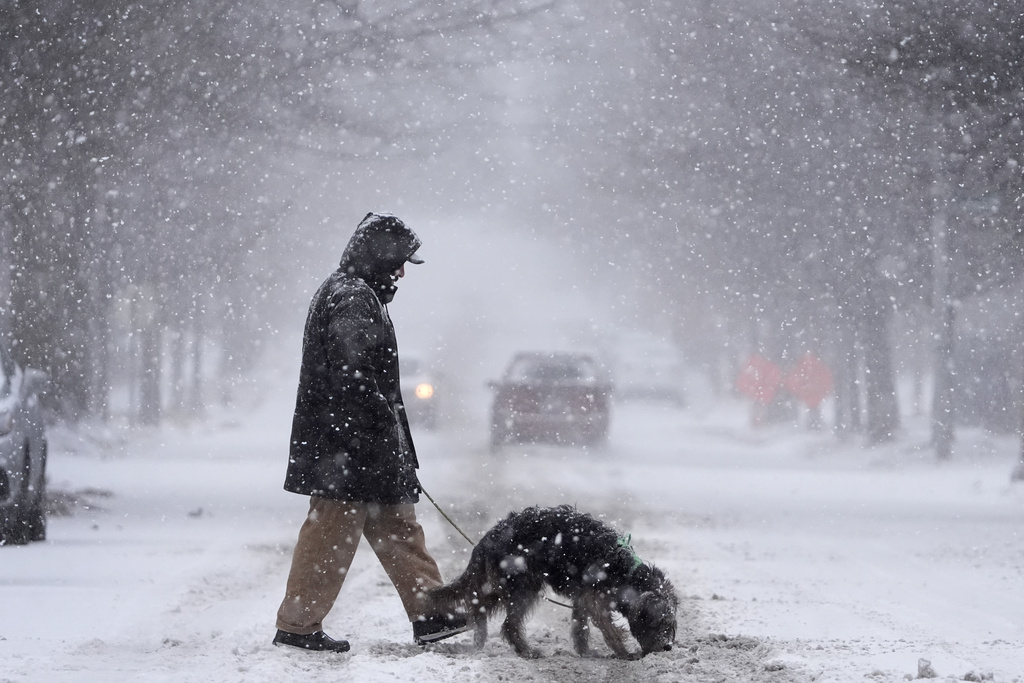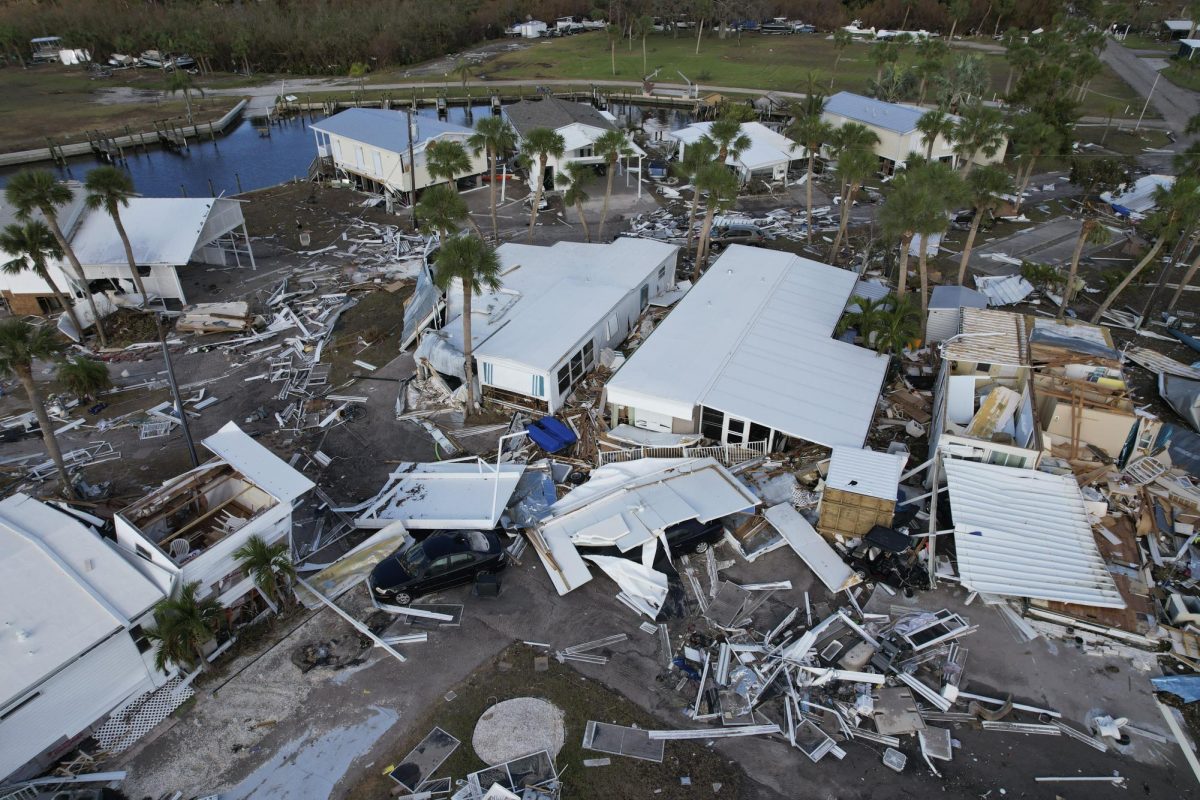Florida is known for its humidity and scorching heat, but heat waves and extreme weather may become more common due to global temperature rise.
Last summer was the hottest on average in recorded history and temperatures continue to rapidly rise. This could be devastating for public health and the environment.
Adam Rosenblatt, an assistant professor of biology at the University of North Florida, spoke about the recent heat wave in the southwest that has broken thousands of high temperature records.
”Heat waves are becoming more common in Jacksonville and across the world,” he said. “And that’s because of climate change.”
Rosenblatt explained that climate change is more nuanced than some may think.
“Climate change is not just one thing,” he said. “It’s temperatures… rainfall patterns, [rising sea levels]. There’s more heat getting trapped on the planet.”
According to Rosenblatt, this heat isn’t just uncomfortable– it’s dangerous.
“Heat is the number one cause of death for people when it comes to weather,” he said.
Rosenblatt explained that excessive heat puts stress on the body, making people more vulnerable to heat exhaustion.
Heat waves can be incredibly dangerous. According to the World Health Organization, more than 166,000 people died due to extreme temperatures between 1998-2017. They also reported that extreme temperatures can cause heat exhaustion and heat stroke—conditions related to the body’s inability to regulate its temperature in extreme heat. Too much heat can also cause symptoms such as cramps, headaches and weakness.
Jacksonville experienced its own heat wave at the start of this month. Rosenblatt gave some tips to stay safe in dangerous temperatures.
“Avoid excessive physical activity outside for a long time,” he said. “Stay hydrated… stay in air conditioning as much as you can… [and] find a place like a pool to cool off.”
Heat waves can also strengthen severe weather like hurricanes, according to Rosenblatt. He expects this year’s hurricane season to be “very busy,” with a higher chance of category 4-5 storms.
Rosenblatt said significant changes must be made to mitigate climate change’s negative effects. In his ideal world, there would be less reliance on fossil fuels. Despite widespread automobile use and excessive production of oil in the U.S., there may still be hope for climate activists.
According to Rosenblatt, there are preventative measures that can be taken. He said we need to deal with the heat that’s already here and utilize more eco-friendly urban design techniques. Asphalt and concrete are notorious for reflecting heat.
“[We need to] stop paving over everything with asphalt and concrete,” he said.
Additionally, Rosenblatt highlighted the benefits of planting trees and greenspace development. Forests act as carbon sinks and absorb carbon dioxide that would otherwise collect in Earth’s atmosphere.
“We need to be planting more trees,” he said.
Rosenblatt said if sufficient action against climate change isn’t taken, things will only become worse.
___
For more information or news tips, or if you see an error in this story or have any compliments or concerns, contact editor@unfspinnaker.com.















